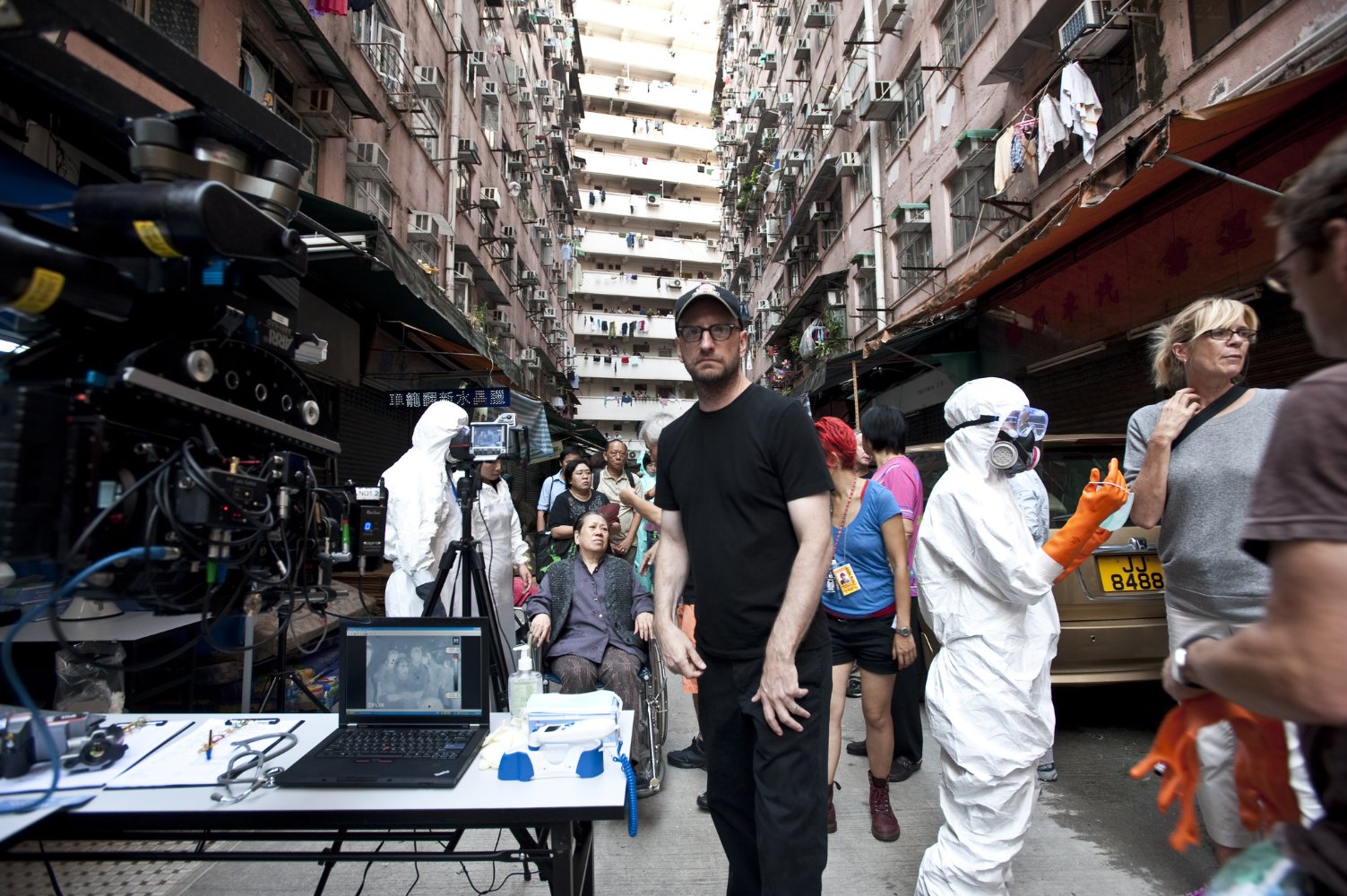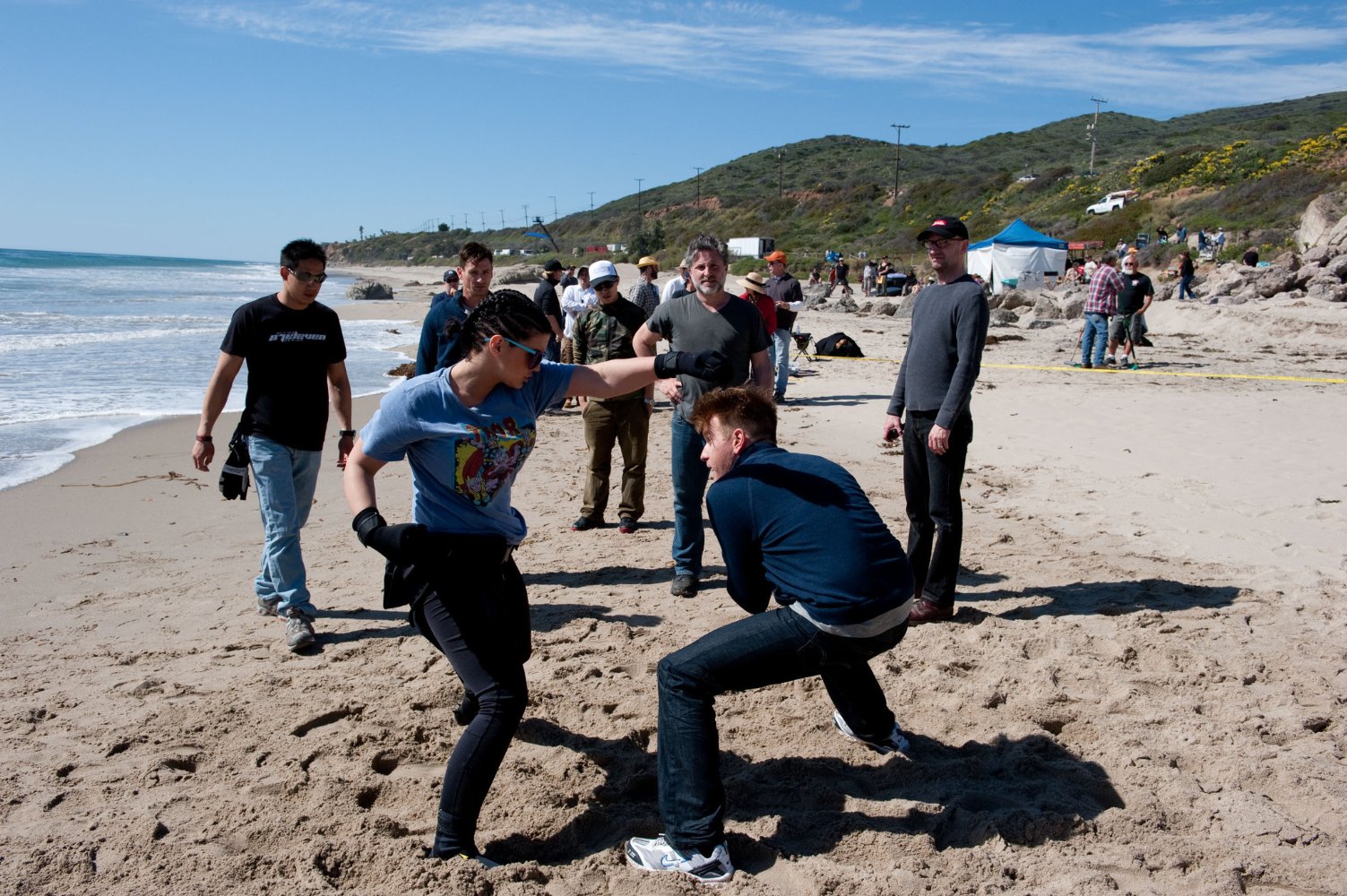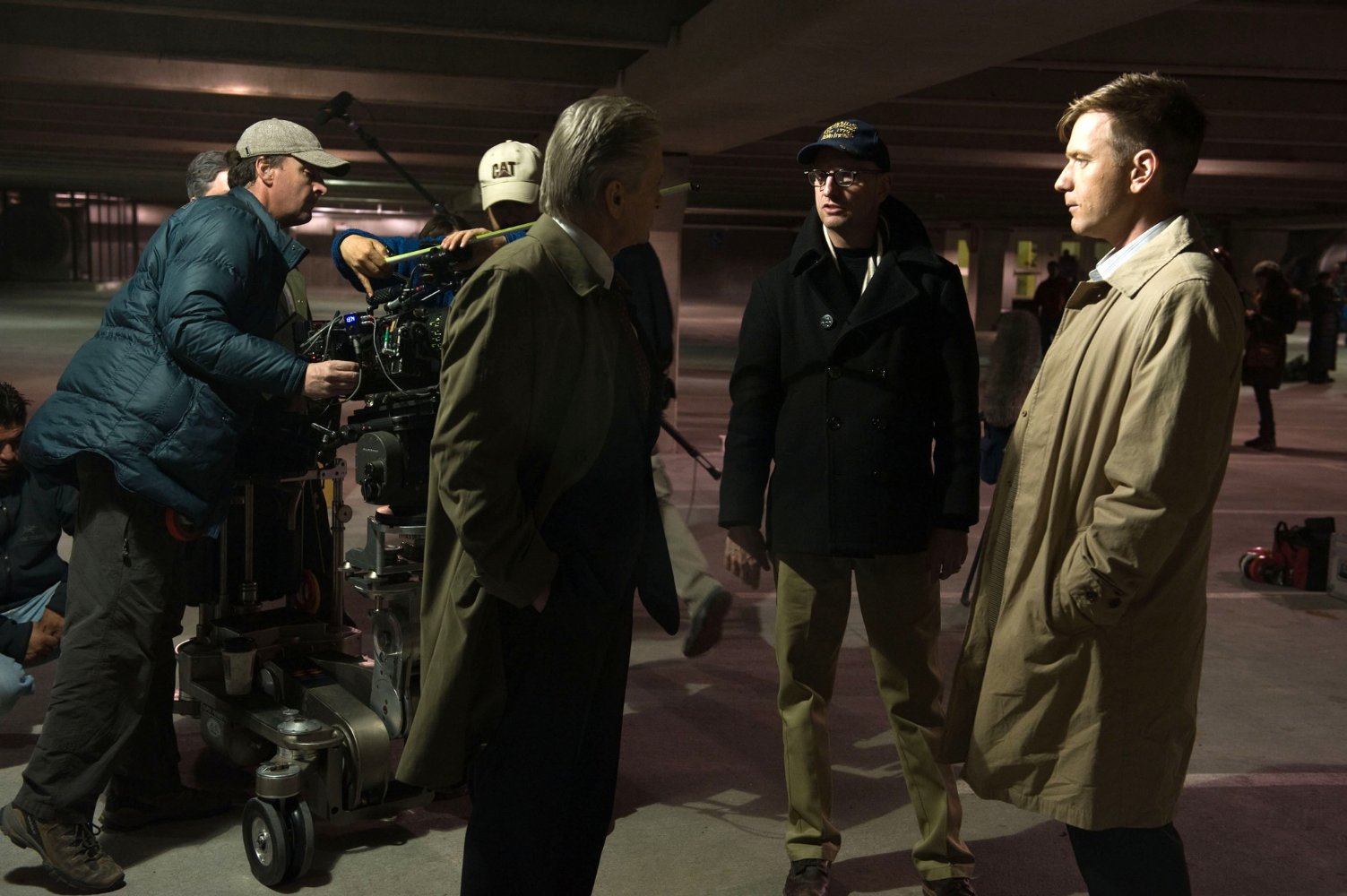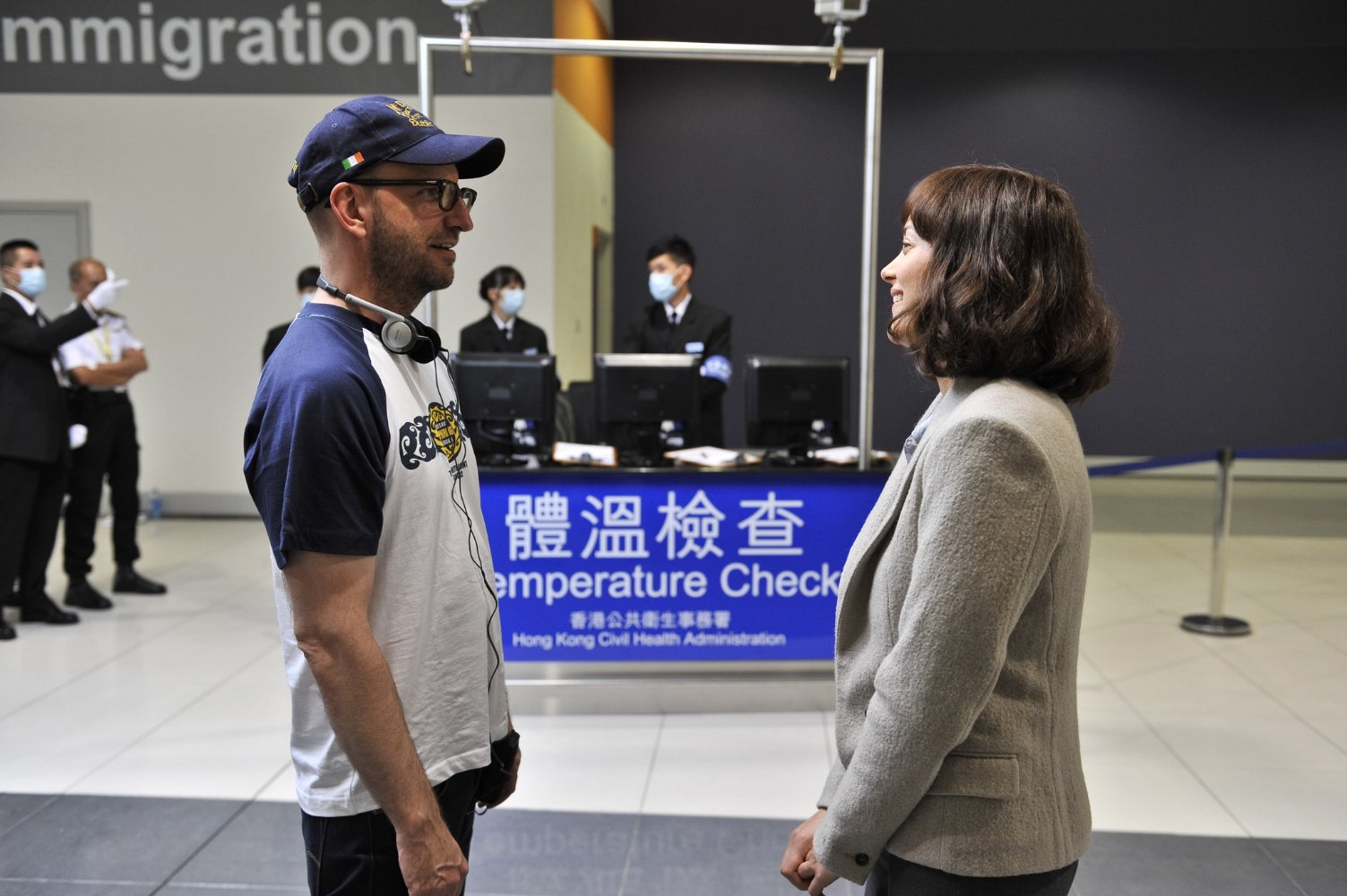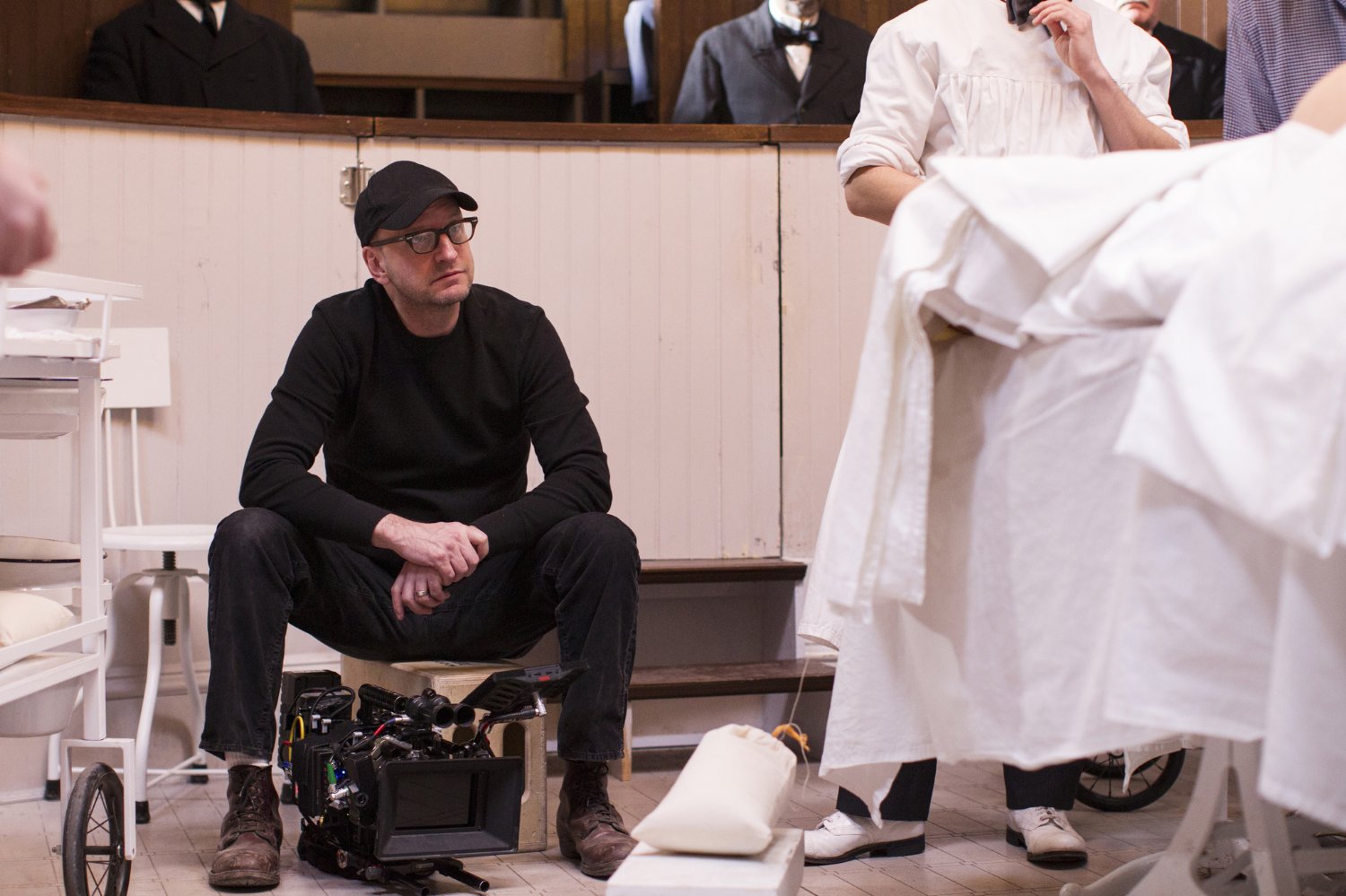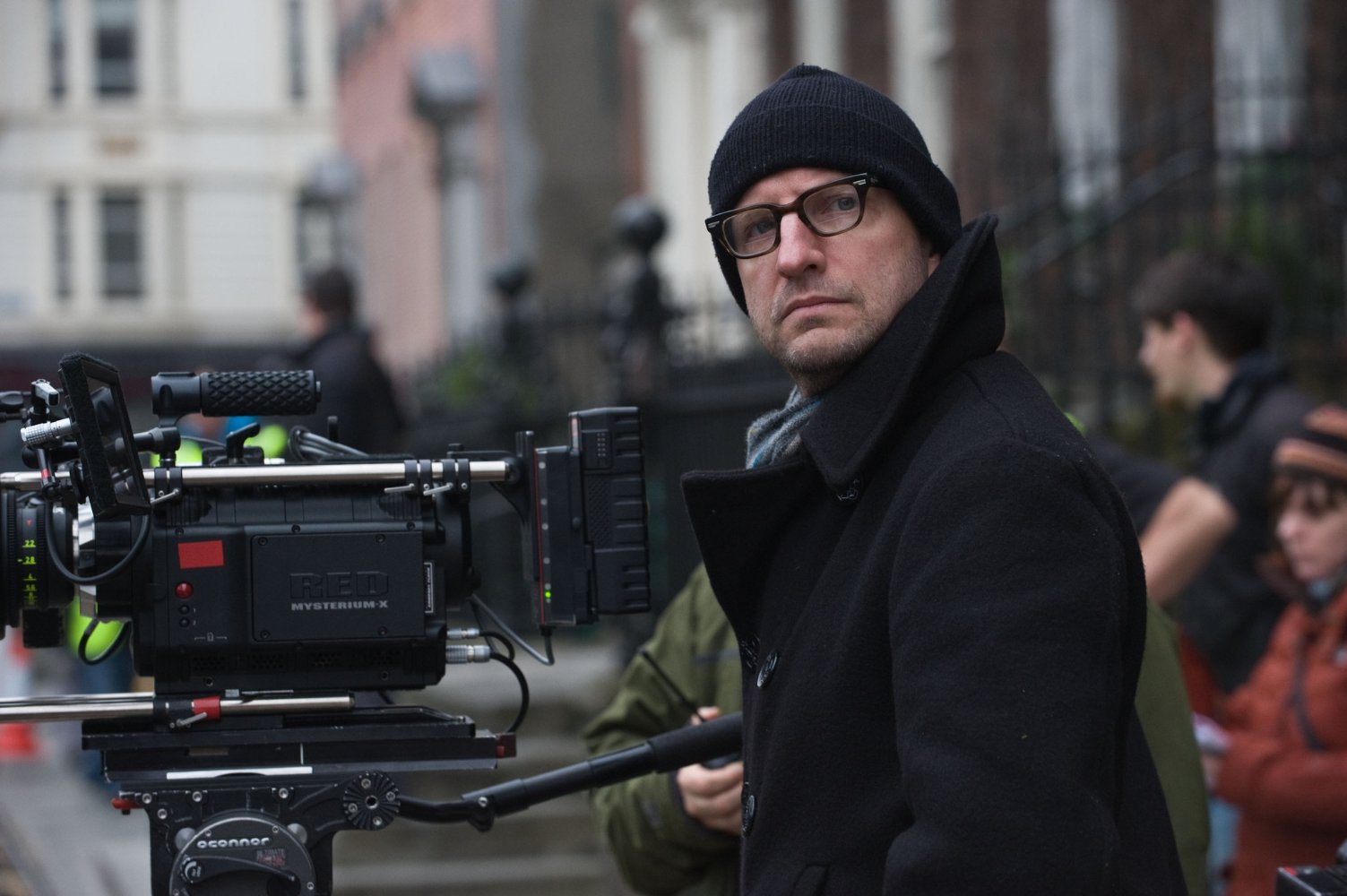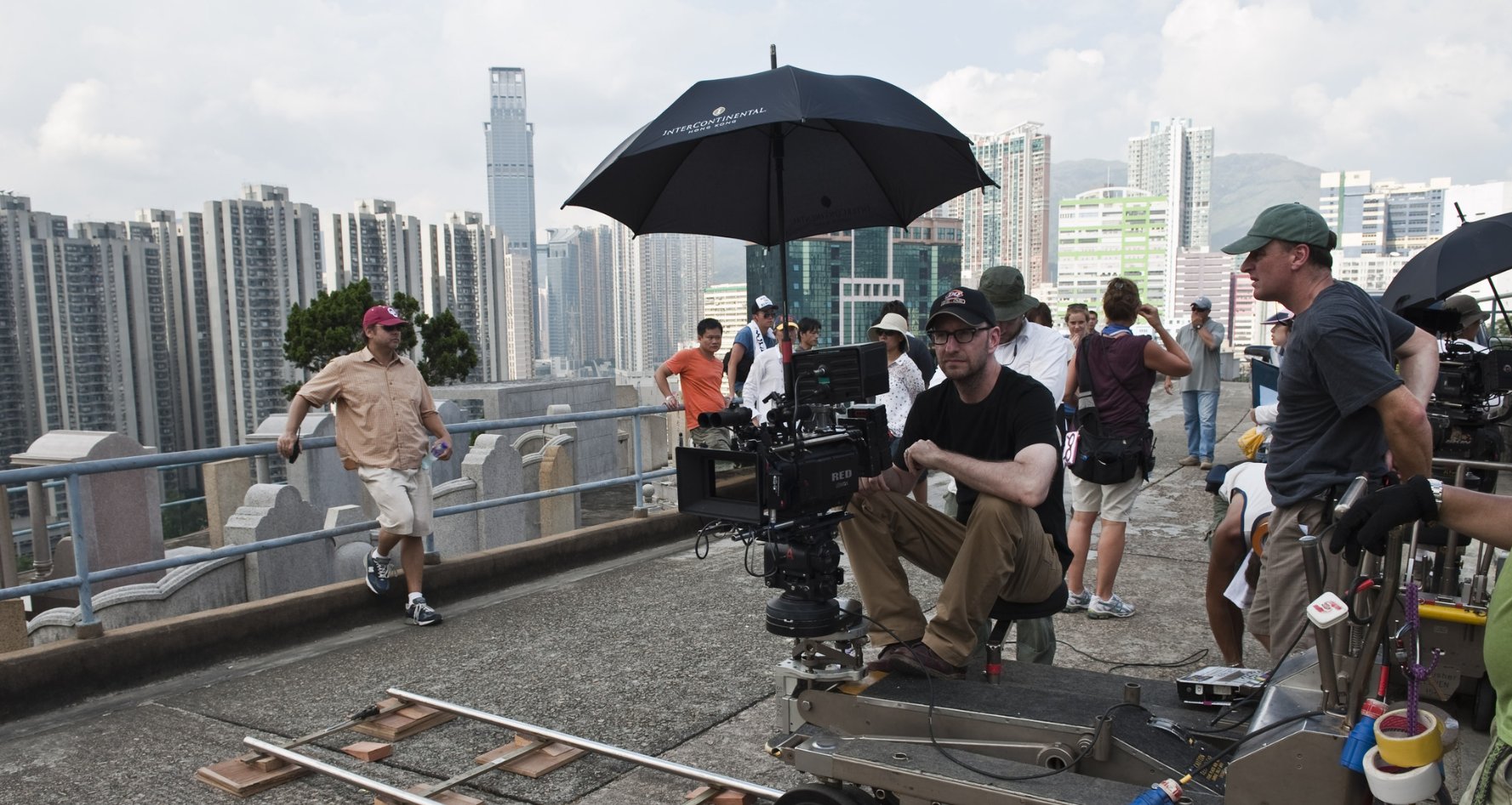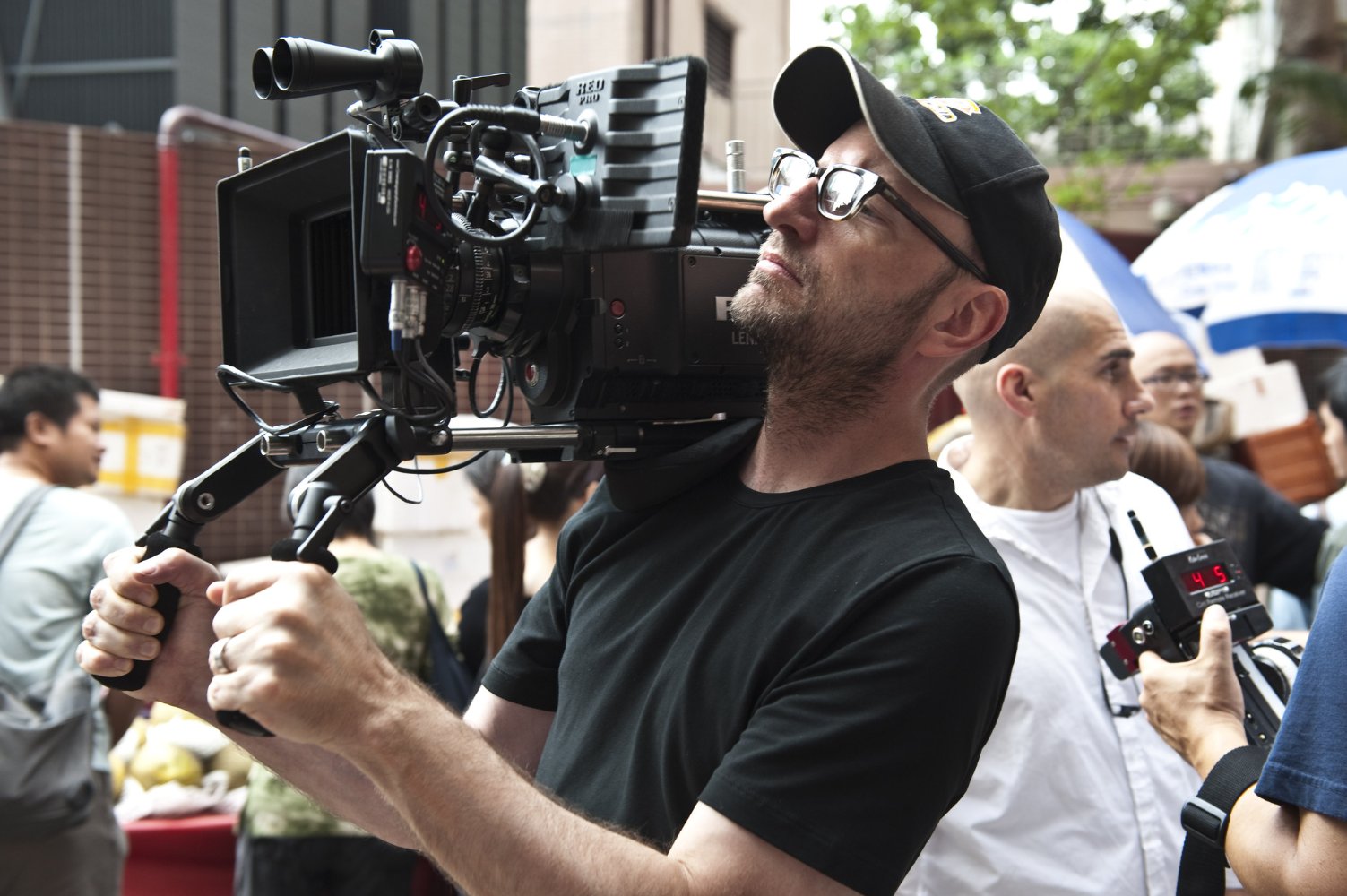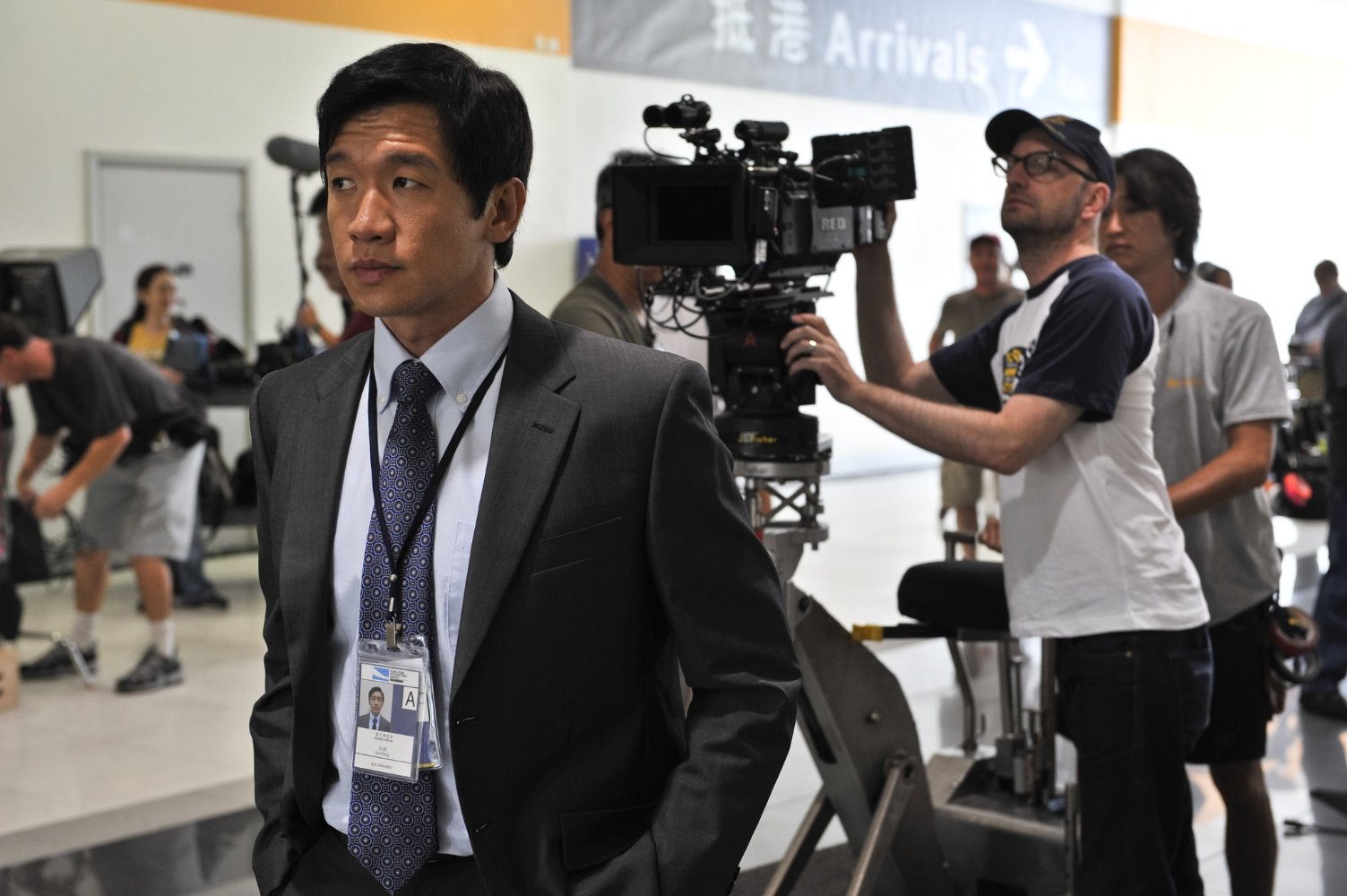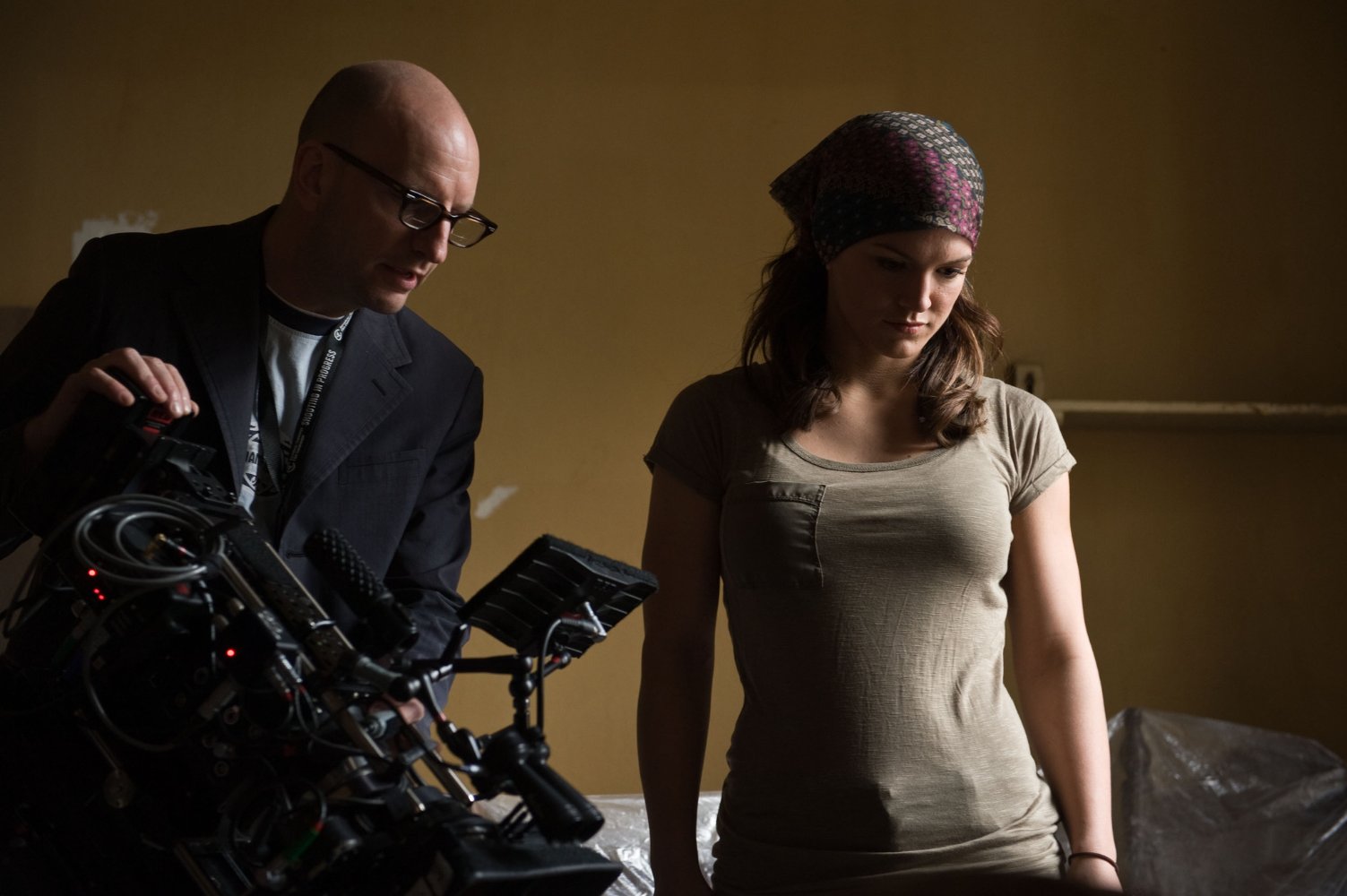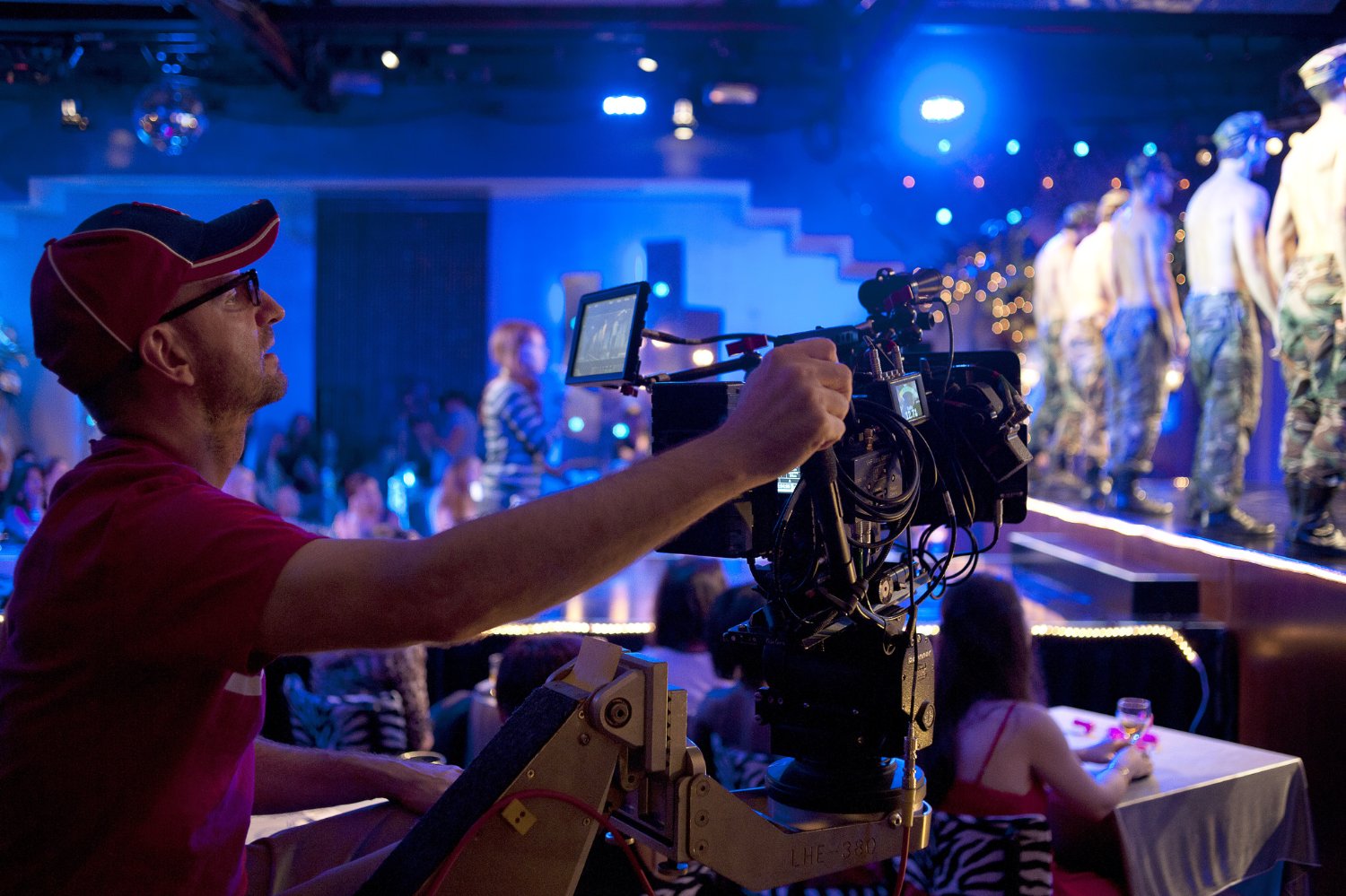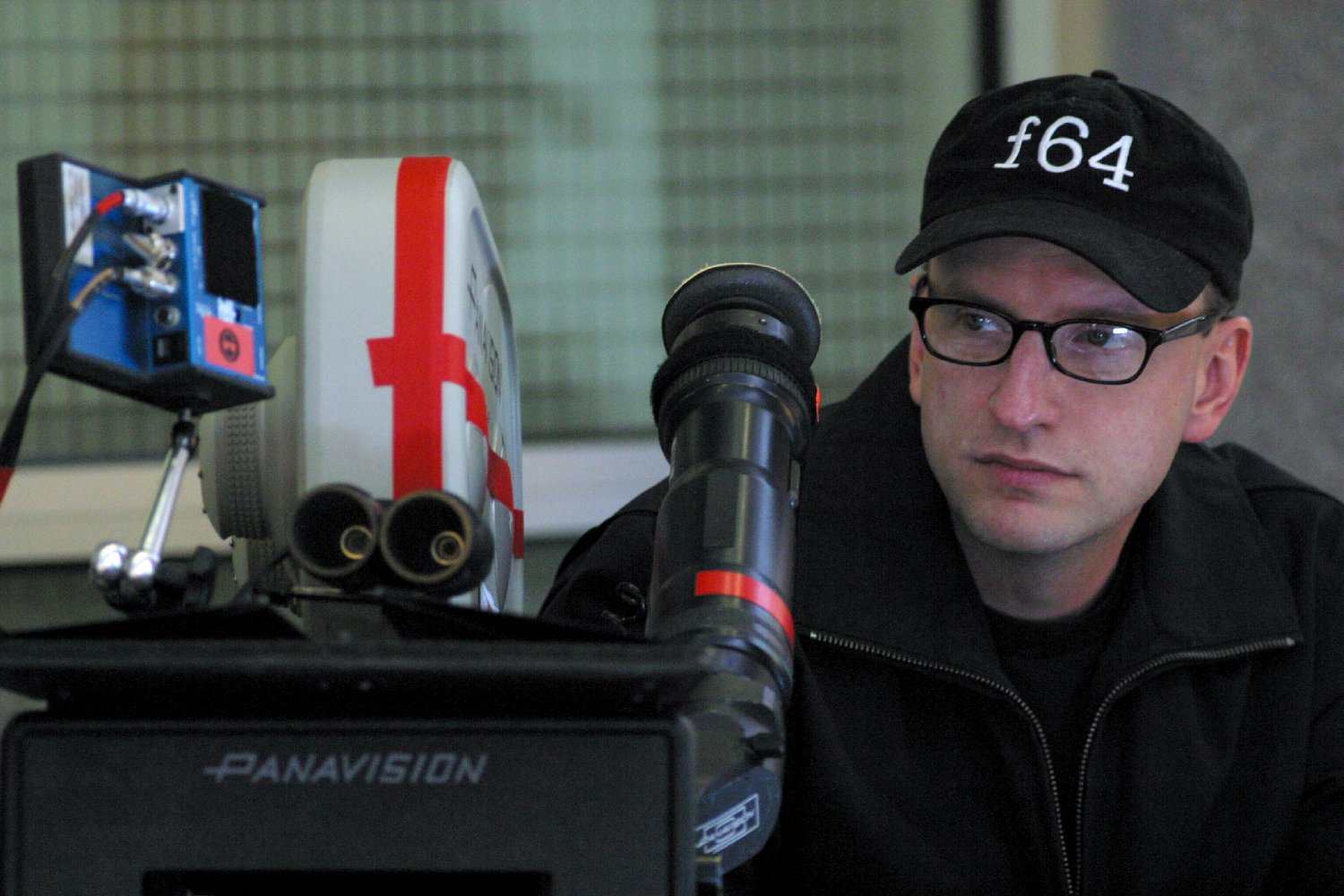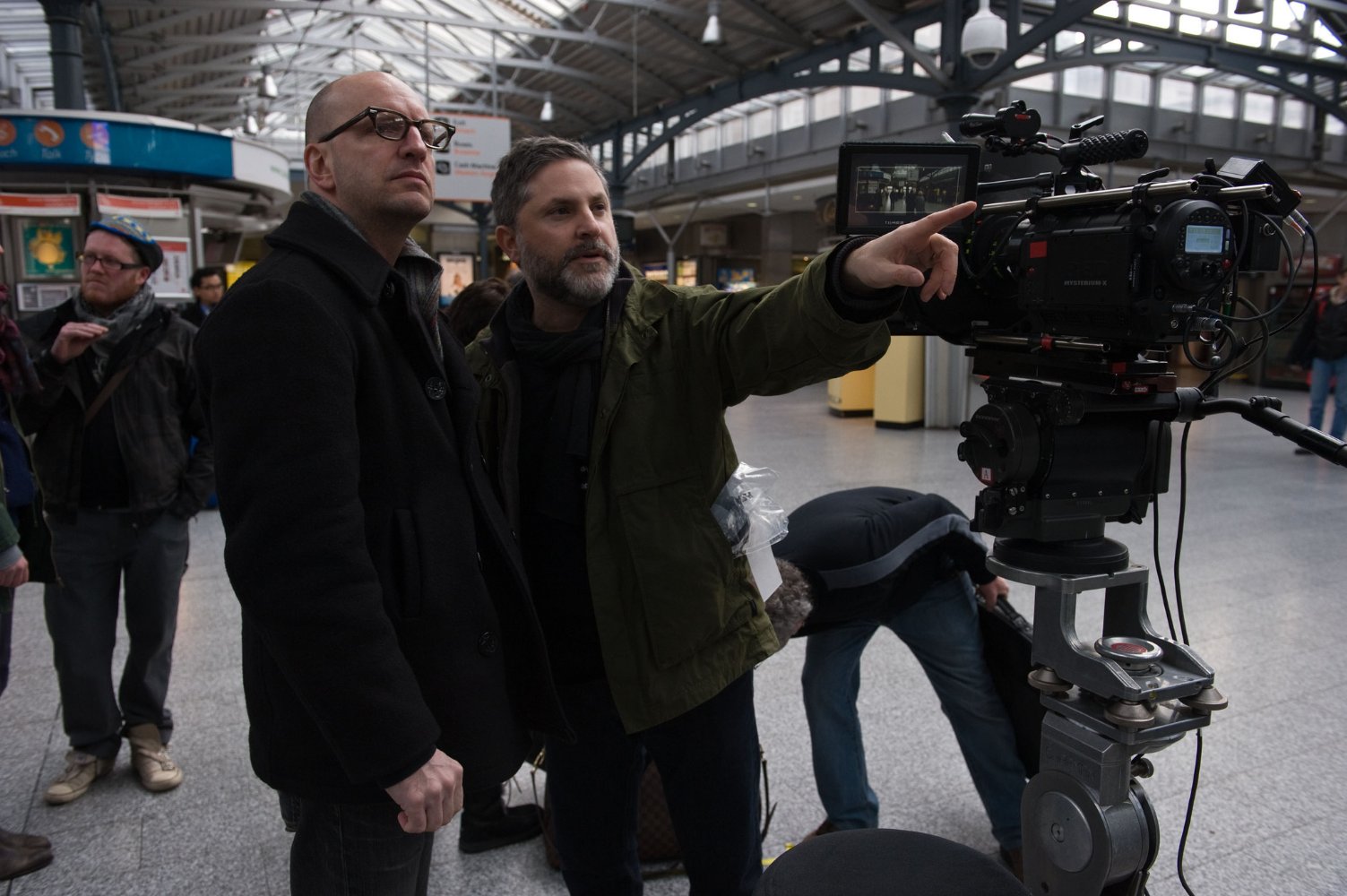
Steven Soderbergh
Birthday: 14 January 1963, Atlanta, Georgia, USA
Birth Name: Steven Andrew Soderbergh
Height: 183 cm
Steven Andrew Soderbergh was born on January 14, 1963 in Atlanta, Georgia, USA, the second of six children of Mary Ann (Bernard) and Peter Soderbergh. His father was of Swedish and Irish descent, and ...Show More
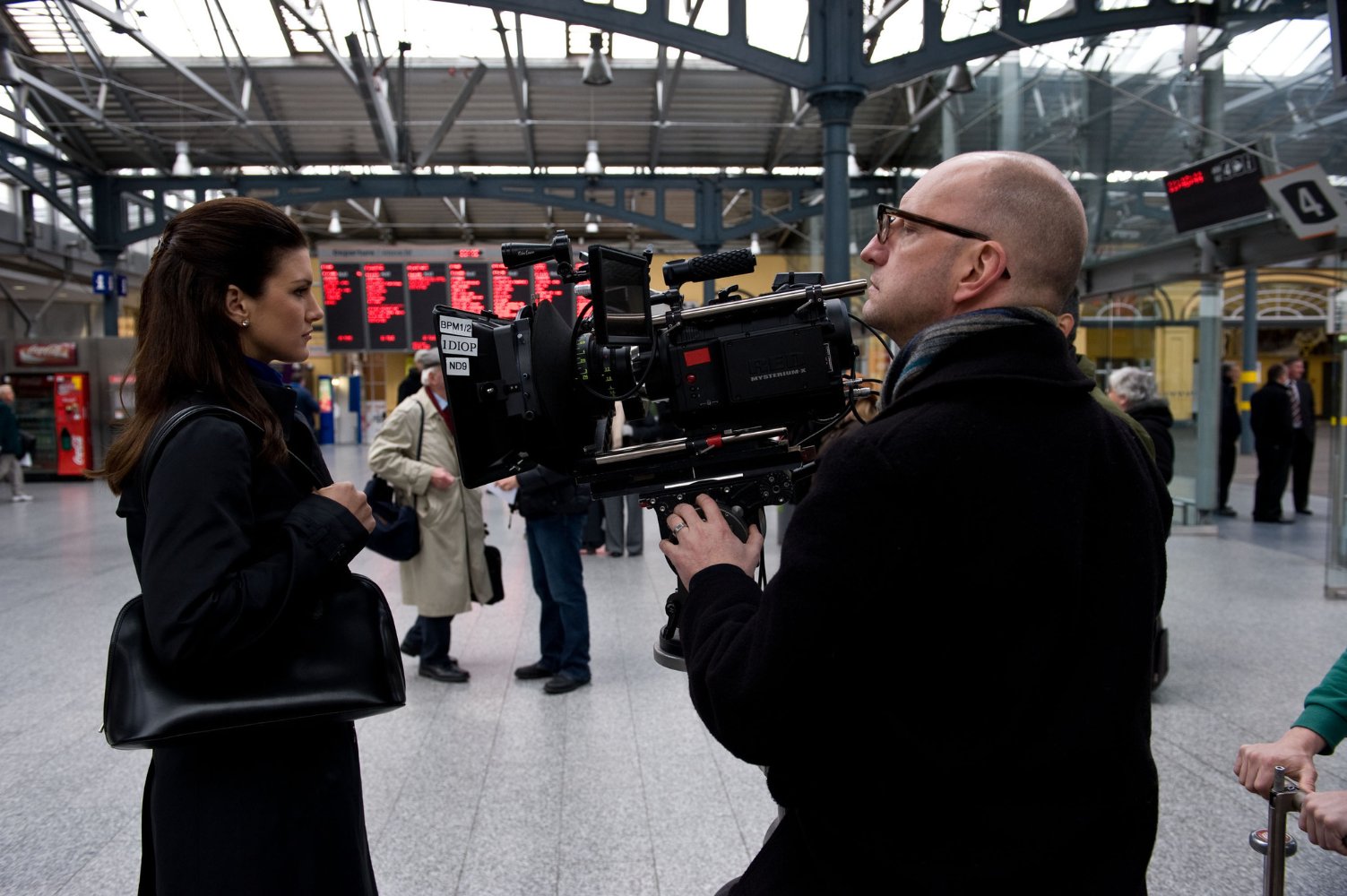
I'm not a world-class cinematographer, but the momentum and the closeness to the actors ... I'm so c Show more
I'm not a world-class cinematographer, but the momentum and the closeness to the actors ... I'm so close to them that I can just whisper to them while we're in the middle of a take. Hide
Even with a trained actor it's dangerous to get them thinking too much. You don't want them thinking Show more
Even with a trained actor it's dangerous to get them thinking too much. You don't want them thinking, you want them doing. Hide
When you have no one in your life who you can call and say, 'I'm scared,' then your life is unintere Show more
When you have no one in your life who you can call and say, 'I'm scared,' then your life is uninteresting, unfulfilling, superficial. You need somebody you can trust enough to say, 'I need help.' Hide
I find it hilarious that most of the stuff being written about movies is how conventional they are, Show more
I find it hilarious that most of the stuff being written about movies is how conventional they are, and then you have people ... they are upset that something's not conventional. Hide
[on Magic Mike (2012), his film about male-strippers] We were looking for the right people who had s Show more
[on Magic Mike (2012), his film about male-strippers] We were looking for the right people who had some buzz behind them. They also had to be able to do what we wanted them to do. But we got real lucky. All those guys were great and have brought something specific to the movie. There's nothing like shared humiliation to bond and these guys bonded very quickly. As soon as we started rehearsing the numbers, you rally around each other because it's so embarrassing. It's terrifying. Then once you've done it, you're in. You've just got to jump off the cliff. Hide
[on making genre films and not being interested in making "serious" or "important" films anymore] So Show more
[on making genre films and not being interested in making "serious" or "important" films anymore] Somebody just sent me one of those books that just came out on Pauline Kael, who I didn't always agree with but I was always interested in what she had to say. And, look, she was a big proponent, especially at a time when it was not fashionable in the '60s. She would say, "I'm getting a lot more out of these lowbrow movies that aren't supposed to be taken seriously than I am these A-level important films. They just feel more alive." And I agree.Maybe since "Che," my interest in and appetite for "serious" movies, making them, has really dropped. I just feel like I want to have more fun as a filmmaker and I'd like to make things that are more fun for the audience. I don't need to be taken anymore seriously that I am. I don't have to prove my important-film bonafides anymore. And so, since "Che," I've been looking for stuff that's more fun. Even "Contagion" to me was a more "genre" movie. I mean, that's my version of a disaster-horror movie. It's how I would do it. The stuff I have coming up, since "Che," I haven't made what I would consider a serious movie by Academy standard. I have no interest in that. Hide
I learned from Richard Lester that as your career goes on, you learn more about how things can go wr Show more
I learned from Richard Lester that as your career goes on, you learn more about how things can go wrong, but you never learn how things can go right. And it's really disorienting. Hide
[on his relationship with writers] I like them to be around constantly [on set] whenever possible. S Show more
[on his relationship with writers] I like them to be around constantly [on set] whenever possible. Some of them are really happy to do that, and some of them don't want to be around at all. But that's really the fun part to me, is to have somebody there to keep calibrating, to keep trying to make it better, to keep asking the questions, "Is this the best version of this idea?" I'm very, very protective of them, and also, if you look at my list of films, on a percentage basis, I would argue that I had more sole credits either to a writer or a writing team than any other director you can find. I have never replaced a writer. Hide
[on his reason for retirement, 2013] Cinema, as I define it and as something that inspired me, is un Show more
[on his reason for retirement, 2013] Cinema, as I define it and as something that inspired me, is under assault by the studios and, from what I can tell, with the full support of the audience. Hide
[on his reported sabbatical or "retirement" from filmmaking] It's a combination of things. It's feel Show more
[on his reported sabbatical or "retirement" from filmmaking] It's a combination of things. It's feeling out of sync with everything that's going on this business at every level. I could probably deal with that if I really felt that I was evolving into something better. Like I said, I'm better now than I was when I started. I'm better than I was five years ago... but at stuff that's superficial - craft. You know, filtering, problem solving... that stuff I'm better at. But in terms of making something that's just off the chart, I'm not. That's not a shift or change that's going to take place incrementally. It requires some form of amputation. So I just need to stop for a while. Hide
I certainly get the sensation that we've kind of hit a wall in the last 20 years. Obviously, people Show more
I certainly get the sensation that we've kind of hit a wall in the last 20 years. Obviously, people are pushing the technical side of it - and when Avatar (2009) comes out that'll be a game-changer for sure - but in terms of the grammar of cinema, I haven't seen anything made since the late '70s or early '80s that I felt was really pushing the ball forward. That doesn't mean I haven't seen some good movies, but I don't feel like there's been a new wave of of how stories are told cinematically. Some of the recent Godard stuff is pretty extraordinary, Notre musique (2004) was really, really beautiful and he got at something at the end of that movie that I wasn't sure you could get at in a movie. But what's the audience for that? How many people are interested in watching somebody make that attempt? I'm frustrated by what's going on in the business, in terms of what's getting made, and I'm frustrated by my own inability to break through to something else. Hide
It was fun during a preview [of Contagion (2011)] to watch the lights come up and have 400 people re Show more
It was fun during a preview [of Contagion (2011)] to watch the lights come up and have 400 people realize that they were next to a bunch of strangers and that they had all touched everything. You could tell they weren't very happy about it. Hide
American movie audiences now just don't seem to be very interested in any kind of ambiguity or any k Show more
American movie audiences now just don't seem to be very interested in any kind of ambiguity or any kind of real complexity of character or narrative - I'm talking in large numbers, there are always some, but enough to make hits out of movies that have those qualities. I think those qualities are now being seen on television and that people who want to see stories that have those kinds of qualities are watching television. Hide
[on achieving reality on film] What's real? Let's start with the world. Knowing that it's a movie, w Show more
[on achieving reality on film] What's real? Let's start with the world. Knowing that it's a movie, we may have to recalibrate. But I know in every instance what's real. What would be happening. Usually, that's good enough. It's not very often that you feel 'Oh, we've got to tweak that'. Hide
[observation, 2012] I just feel I want to have more fun as a filmmaker, and I'd like to make things Show more
[observation, 2012] I just feel I want to have more fun as a filmmaker, and I'd like to make things that are more fun for the audience. I don't need to be taken anymore seriously than I am. Hide
[on working with actors who are also writers and if it is preferable in any way] No, it's a huge ben Show more
[on working with actors who are also writers and if it is preferable in any way] No, it's a huge benefit. I mean, Scott [Z. Burns] would be the first to tell you. In a couple of cases in Contagion (2011) we'd have a scene that he and Matt [Damon] and I would sort of re-tool on the set based on what we were thinking that day. To have someone like Matt who's not looking at it from the point of view of, "I'm the movie star," but who's someone who has written and is very sort of savvy about how movies work and how narrative works. It's great to have that person in the conversation to be able to talk about the movie on a macro level and not just the thing that we're doing right now. That's just a huge plus for a filmmaker. I mean, he's very bright. ...He [Matt Damon] understands that stuff. It's something he thinks about a lot, and his instincts are good. My opinion is if you can get him, you should get him. Hide
[on realism/accuracy in film and if one can make a movie too smart for audiences] ... As sort of air Show more
[on realism/accuracy in film and if one can make a movie too smart for audiences] ... As sort of airtight as the science is, there used to be a lot more of it, and what we found out was people started tuning out. There was a tipping point where they became overwhelmed and they just stopped paying attention completely, so we had to back off of some of that and make sure. But again, it was kind of trial and error to try and find this balance of enough science to make it feel real and make it feel scary, but not so much that you were going, 'Hey man, give me a break.'... I think when you're dealing with a certain kind of material, yeah. That was the case here. Like I said, there were versions where there was just too much technical information, and we were expecting people to sort of assimilate and retain information that a journalist might not assimilate or retain, and we didn't know that. You just gotta show it to people who are not your friends to figure that out. Hide
[on being asked "have you met any naturally great leaders?"] George Clooney. He inspires people. He Show more
[on being asked "have you met any naturally great leaders?"] George Clooney. He inspires people. He listens. He's generous. He's loyal. He's funny, which is crucial. He solves problems better than anyone I know. That's why people keep telling him to run for office, but he's too smart for that. If there were 500 of him, you could take over an entire country - but of course three weeks later you'd lose it again because of all the parties. Hide
If you're sitting around thinking what other people think about your work, you'll just become paraly Show more
If you're sitting around thinking what other people think about your work, you'll just become paralysed. Hide
This is a good moment to comment on the cottage industry that has sprung up around "How To" ... Scre Show more
This is a good moment to comment on the cottage industry that has sprung up around "How To" ... Screenwriting manuals. I think of this because Robert Towne's script (Chinatown (1974)) is often cited as a great template (which it is) but, invariably, with no understanding or acknowledgment of the role film editing has in shaping a finished work.So any discussion that omits this issue shows a palpable lack of experience in the actual making of films on the part of the scriptwriting teacher/author. Hide
[on Contagion (2011)] Everybody felt there was a place for an ultrarealistic film about this subject Show more
[on Contagion (2011)] Everybody felt there was a place for an ultrarealistic film about this subject. Nobody hesitated. Uncharacteristically it happened very quickly, considering what the business is like for adult dramas. So it made me feel like maybe we're on to something. Hide
[on what he feels is his most underrated film] I don't know. My sense of [critical reaction] since T Show more
[on what he feels is his most underrated film] I don't know. My sense of [critical reaction] since Traffic (2000) is based on a vague understanding of what the response is, because I stopped reading reviews about my own movies. I read stuff about other people's movies. My sense is that The Good German (2006) was not fully understood. Probably of all of them, that would be the one. There are other things that have been lambasted that I think had things wrong with them, but [The Good German], creatively, from my standpoint, is a very unified piece, and was, again, from my viewpoint, successful at what it was trying to do. It's a weird thing to say, but it would appear to me axiomatic that if you understood fully what I was doing and appreciated it, you would like it. But that issue was more in the forefront because it needed critical support to work commercially, and it didn't get it. So it lost every nickel. The lesson coming out of that one for me was that you should never assume anything coming from a critical standpoint. You should go into everything assuming you're going to get crushed. It's like when people talk about Obama. My whole attitude is, "You should govern like you aren't going to get a second term." I make every movie like it's the last one. "If this was the last movie, what decision would I make?" That's how I make my decisions. Hide
Well, I think a part of you has to be scared, it keeps you alert; otherwise you become complacent. S Show more
Well, I think a part of you has to be scared, it keeps you alert; otherwise you become complacent. So absolutely, I'm purposefully going after things and doing things that I'm not sure if it's going to come off or not. Certainly Full Frontal was one of those. That was pure experimentation, that's the kind of film that you make going in where you know that a lot of people are not going to like it because it's an exploration of the contract that exists between the film-maker and the audience and what happens when you violate that contract. Hide
[on striving for realism in his filmmaking] I just think that's the first question we ask when we st Show more
[on striving for realism in his filmmaking] I just think that's the first question we ask when we start something. What's real? Let's start with the world. Knowing that it's a movie, we may have to recalibrate. But I want know in every instance what's real, what would really be happening. Usually, that's good enough. It's not very often that you feel, "Oh, we got to tweak that."I'm less prone to change things now that I would have been 10, 15 years ago. "Moneyball" is the perfect example of that. At the end of the day, part of my problem with that was my refusal to do something that didn't happen. I wanted the movie to be absolutely accurate in every particular. Hide
The only two categories I have are good and bad. No other categories exist for me in terms of scale, Show more
The only two categories I have are good and bad. No other categories exist for me in terms of scale, content or intent. The only thing that matters to me is whether it's good. Hide
I'm process-driven, I'm not result-driven.
I'm process-driven, I'm not result-driven.
[on his reported sabbatical/"retirement" from filmmaking] I'm not going to stop making things. I jus Show more
[on his reported sabbatical/"retirement" from filmmaking] I'm not going to stop making things. I just need to come at it from a different direction. I don't think change can be incremental. I need to tear it all down and start again. I tried that after "The Underneath," with "Schizopolis," and that felt like my second "first" film, and that reverberated [in my work] for quite a long time. But even that explosion [of creativity] has started to ... has stopped expanding, and I've started to retract. I feel like I'm not moving forward. Plus, it's not as fun as it used to be.I wish movies mattered more. I wish they were more influential. I mean, they do influence things, but only things that are not that important, such as how people talk, how they dress. But in terms of having a real role in the ongoing debate about how everything should work, how lives should work, they're not influential. There was a period where I felt that the movies coming out were as good as any novel, as any form of serious art that you could look at, and I'm particularly frustrated by my inability to create something at that level. I watch older movies regularly, depending what I'm working on, for inspiration. But I'm just not that inspired right now. Hide
Things are so prescribed in movies. I don't care who's financing it, there's always a list: "Here's Show more
Things are so prescribed in movies. I don't care who's financing it, there's always a list: "Here's a list of names who would be good for that part." It's so boring. Shouldn't we be growing new crops here? That's why I love this cast, and building this movie [Haywire (2011)] around Gina (Carano). Let's open up the field a bit! Hide
I think it's a real privilege to make a living doing this job. It's a great job - the best I can thi Show more
I think it's a real privilege to make a living doing this job. It's a great job - the best I can think of, actually. You walk into a room and say, "I'm imagining this," and they give you millions of dollars to go out and make it real. That's a pretty good gig. I have certain standards - sometimes I hit them and sometimes I don't. I don't think being precious is really good for any artform. So I believe in being really prepared, working hard, doing everything I can think of to improve it, but staying on budget, staying on schedule, and when it's over, it's over and I'm onto the next thing. I'm really dispassionate about it, in that regard. I haven't seen a great benefit in my own work in agonising over things. I've seen more of a benefit in my work, for moving quickly. It's harder to be pretentious when you're moving really fast. Hide
[when asked what he considers his best work] Out of Sight (1998) is one of the least-flawed things I Show more
[when asked what he considers his best work] Out of Sight (1998) is one of the least-flawed things I've done. I'm really happy with The Informant! (2009). I was the beneficiary of things lining up at the right time with the right people and the right approach. It's terrifying how early the die is cast when making a movie. It's well before shooting. And that's scary thing to know. I know before I was making Underneath (1995) that the movie wasn't going to work, and that was an unpleasant sensation to have to hide from people. All you can do, if it's going wrong, is try to exert enough influence to turn a car accident in which four people are killed into one where no-one is killed and you're in the hospital for three weeks. In the case of The Informant! I felt like the right key creative choices were made early and played out in a way that really unified the film. Hide
[on studios replacing writers more often than directors] Yeah, they are, more than filmmakers, which Show more
[on studios replacing writers more often than directors] Yeah, they are, more than filmmakers, which I don't understand why writers are so angry at directors all the time. In my experience, it's usually the studio that's going, "Yeah, let's throw this person under the bus and get somebody new." I wouldn't allow that to happen. Hide
I'd argue my failures have been more on a conceptual level than on an execution level. I have made s Show more
I'd argue my failures have been more on a conceptual level than on an execution level. I have made some mistakes that, in retrospect, come from overestimating the appeal of a certain idea. The Good German (2006) is a failure because the idea isn't simple enough to attract enough people to return its investment. The execution of it is fine, but it's clear that there just aren't enough people in the world wondering, "What if Michael Curtiz could do anything he wanted?" That's my fault for not seeing the target was just way too small. It's frustrating to watch The Good German lose every nickel that was spent on it, because Warners were very supportive on it. And I don't like losing people money. Hide
One of the reasons the business is in the condition it's in now is a lack of vision about how to dea Show more
One of the reasons the business is in the condition it's in now is a lack of vision about how to deal with talent. Instead of trying to identify, on a project-by-project basis, what is going to work, studios ought to be betting on talent and making deals that have specific financial parameters within which the talent can do whatever they want, if they prove themselves able to generate a profit. Because if you'd financed all of my films, you're up - significantly up, actually. That's the way you should be running this business. Because in point of fact - any rat-based lab experiment about probability will tell you this - you increase your chances of missing when you choose films individually. They should be betting on the career of somebody. By definition the really smart people in this business are the ones making the stuff. That has to be the case. Making it is harder than sitting in an office and deciding what should be made. It doesn't mean I should walk around feeling like a smart guy. I'm just saying that's a reality you have to understand when you try and convince somebody to give you money to make a movie: you know more about making movies than they do - by definition. When you combine that with the fact that we're in a very tricky economic time, there's a lot of fear in the room. So when you talk about things that are difficult to describe in writing but are crucial to the creative success of a movie, that's tricky. You're saying, "You're just going to have to trust me..." I don't like to say those words, and they don't like to hear them, and there's no question that in the last two years there are certain words in meetings that you can't say. Words like "elevated", "smart", "better". You literally can't indicate at any point that you're going to do anything that won't be understood by a below-average-intelligence audience member. You really have watch what you say. Hide
[on if he feels he understands what audiences want] No. I've tried to get better about weighing what Show more
[on if he feels he understands what audiences want] No. I've tried to get better about weighing what I think the accessibility of an idea is against the cost of executing it. I've tried to be smarter about that, because if you're not smart about that, you're going to be unemployed. But I'm still mystified about what works for people. And I'm not talking about my movies, I'm talking in general. I'm mystified by the stuff that doesn't work. I'm mystified by what's going on in the critical side, too. Stuff I like is getting trashed and stuff that is being praised I think is terrible. I don't really feel in sync with what's happening, but at the same time, what I think keeps me afloat is that I try not to be, and don't want to be, very indulgent. I try to make the films as lean as possible, and to not spend a lot of time crawling up my own ass creatively. Hide
[on his decision to direct Out of Sight (1998)] It was a very conscious decision on my part to try a Show more
[on his decision to direct Out of Sight (1998)] It was a very conscious decision on my part to try and climb my way out of the arthouse ghetto, which can be as much of a trap as making blockbuster films. And I was very aware that at that point in my career, half the business was off limits to me." Hide
There are certain directors - Spielberg, David Fincher, John McTiernan - who sort of see things in t Show more
There are certain directors - Spielberg, David Fincher, John McTiernan - who sort of see things in three dimensions, and I was watching their films and sort of breaking them down to see how they laid sequences out, and how they paid attention to things like lens length, where the eyelines were, when the camera moved, how they cut, how they led your eye from one part of the frame to another. Hide
On DVD audio commentaries: "Would I, growing up, like to have had access to stuff on DVDs like this? Show more
On DVD audio commentaries: "Would I, growing up, like to have had access to stuff on DVDs like this? Oh God, yeah! It's better than any film school, I think." Hide
[on 'Gina Carano' in Haywire (2011)] You're dealing with a cage fighter. You never know what you're Show more
[on 'Gina Carano' in Haywire (2011)] You're dealing with a cage fighter. You never know what you're going to get. But she seemed pretty normal, sincere. She knows what to do with her body. And she knows what to do with her eyes. So I felt we were going to be fine. Hide
...there've been a lot of questions about commercial films and non-commercial films, and I've never Show more
...there've been a lot of questions about commercial films and non-commercial films, and I've never really made that separation in my mind. There's no question that when you read a piece of material, you have ideas about how it should be realised ... certainly when I read the script for Ocean's Eleven, I thought if this was realised the way it should, then it would appeal to a lot of people. Then you get involved in a film like Solaris and if you realise it the way it should be realised, then it won't appeal to a lot of people. But what are you going to do? You have to go at it... Hide
[on categorizing films by genre] That can become a very facile exercise and one that doesn't really Show more
[on categorizing films by genre] That can become a very facile exercise and one that doesn't really take into account certain kinds of filmmakers. Pick any of the people that we think are very, very good, if they go and make something that's a genre film, you know that it's not going to be just that.The only two categories I have are good and bad. No other categories exist for me in terms of scale, content or intent. The only thing that matters to me is whether it's any good.And look, there are times when that's hard. It's hard to root for assholes and sometimes it's harder still to see something bad made my somebody who's really great. I remember reading that unauthorized Led Zeppelin biography that came out in the '80s. I couldn't listen to their music for a year after I read that book. Seriously, it was so disturbing. I took me a year to go, look, I don't care.If you're looking for fair, you're in the wrong universe. Hide
Steven Soderbergh's FILMOGRAPHY
All
as Actor (9)
as Director (21)
as Creator (1)














